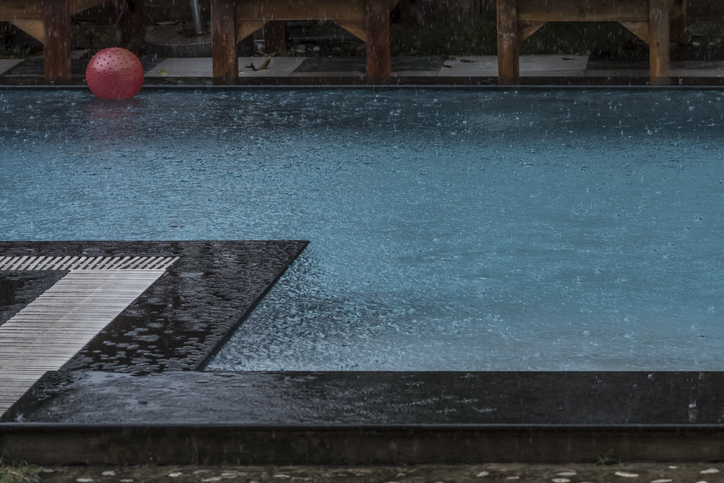How Does Rain Affect Pool Water?

Rain's Effect on Pool Water
We can never avoid a few rainy days in the summer. The extra water that is accumulated from rain can result in a change of chemistry. A pool can become unsanitary due to the algae and other debris that are carried along with rain drops and deposited in the pool. Since algae spores are constantly floating throughout the air and be carried by the wind it is common for them to seek out damp places with standing water, making your pool a perfect target.
Preventing Disaster
Not much can be done to stop the rain and algae from getting into your pool water but you can act quickly so that the toxic mix does not ruin all of your hard work. The chemical reactions of this mix can cause your chlorine to become less effective so to prevent this you have to kill the algae that has contaminated your pool faster than it can reproduce. Algaecide does not decompose in chlorine or sunlight so it will continue to attack algae as long as there is water. Keeping algaecide at a high range will keep your chemicals in balance and get rid of those pesky algae.
Other Ways to Protect Your Pool
Extra precautions can be taken during bad weather to protect your pool from harm. Securing any yard furniture and other loose objects can prevent them from being blown in the water and contaminating your pool with any dirt.
Rainwater is never a good addition to your pool; the algae and other materials that end up in your pool after a rainy day can make you and your family sick. Remember to test your pool water regularly, especially after rain, to protect and fight against any contamination.






 Pools
Pools Spas
Spas Liners
Liners Equipment
Equipment Covers
Covers Accessories
Accessories Cleaning
Cleaning  Pool Fun
Pool Fun  Clearance
Clearance
